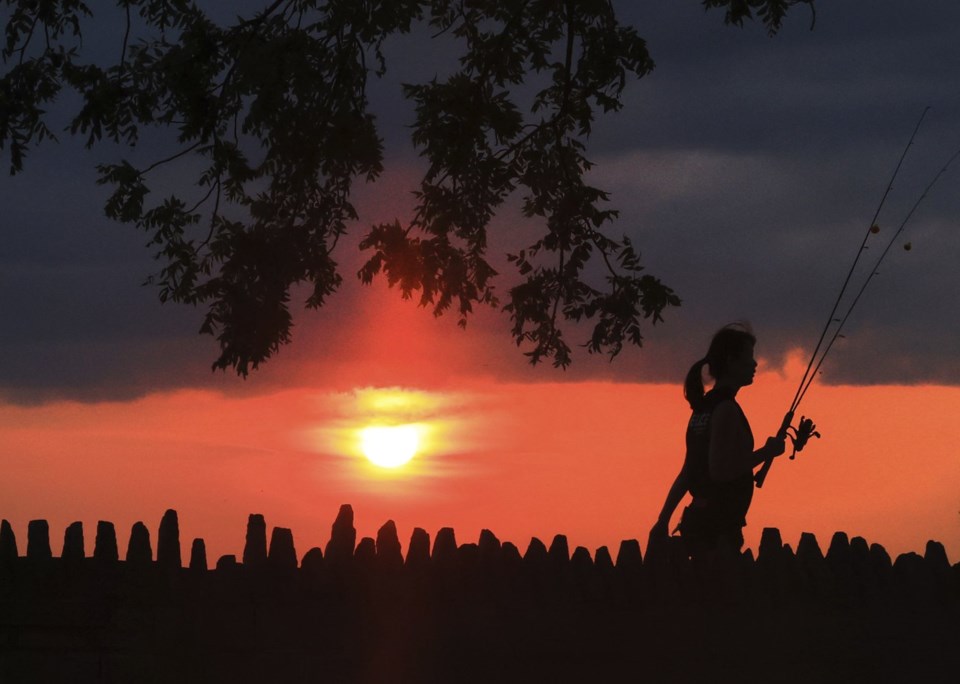CHICO, Calif. (AP) — Fire crews battling California's largest wildfire this year have corralled a third of the blaze aided in part by cooler weather, but a return of triple-digit temperatures could allow it to grow, fire officials said Sunday.
Cooler temperatures and increased humidity gave firefighters “a great opportunity to make some good advances” on the fire in the Sierra Nevada foothills, said Chris Vestal, a spokesman for the California Department of Forestry and Fire Protection.
The Park Fire has scorched 627 square miles (1,623 square kilometers) since igniting July 24 when authorities said a man pushed a burning car into a gully in Chico and then fled. The blaze was 30% contained as of Sunday.
The massive fire has scorched an area bigger than the city of Los Angeles, which covers about 503 square miles (1,302 square kilometers). It continues to burn through rugged, inaccessible, and steep terrain with dense vegetation.
The fire’s push northward has brought it toward the rugged lava rock landscape surrounding Lassen Volcanic National Park, which has been closed because of the threat. The inhospitable terrain remains one of the biggest challenges for firefighters.
“The challenge with that is we can’t use our heavy machinery like bulldozers to go through and cut a line right through it,” Vestal said.
“On top of that, we have to put human beings, our hand crews, in to remove those fuels and some of that terrain is not really the greatest for people that are hiking so it takes a long time and extremely hard work,” he added.
The fire has destroyed at least 572 structures and damaged 52 others. At least 2,700 people in Butte and Tehama Counties remain under evacuation orders, Veal said.
After days of smoky skies, clear skies Sunday allowed firefighters to deploy helicopters and other aircraft to aid in the fight against the blaze as temperatures reached above 100 degrees Fahrenheit (about 38 degrees Celsius).
“The fire is in a good place from the weather conditions we had the last couple of days but we still have to worry about the weather that we have and the conditions that are going to be present now for about the next five or six days,” Veal said.
The fire in Northern California is one of 85 large blazes burning across the West.
In Colorado, firefighters were making progress Sunday against three major fires burning near heavily populated areas north and south of Denver. Many residents evacuated by the fires have been allowed to go back home.
The Jefferson County Sheriff’s Office is investigating a blaze threatening hundreds of homes near the Colorado city of Littleton as arson.
About 50 structures were damaged or destroyed, about half of them homes, by a fire near Loveland. And one person was found dead in a home burned by a fire west of the town of Lyons.
Scientists say extreme wildfires are becoming more common and destructive in the U.S. West and other parts of the world as climate change warms the planet and droughts become more severe.
In Canada, a 24-year-old firefighter battling a blaze in Jasper National Park was killed Saturday by a falling tree, the Royal Canadian Mounted Police said.
The firefighter from Calgary, whose name was not released, was battling a fire north of Jasper, a town in Alberta Province that was half destroyed last month by a fast-moving fire.
The Associated Press



